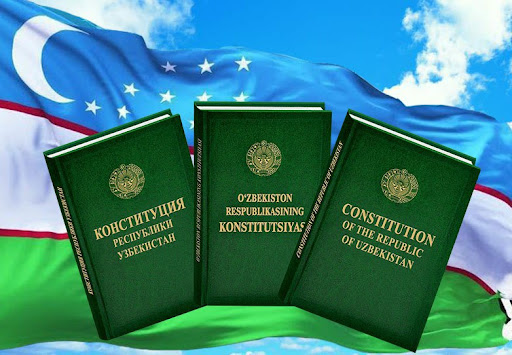Phone
Consular Issues
Phone
Embassy messages

Uzbekistan: civil society institutions — a bridge between society and state
Today, civil society institutions, particularly non-governmental non-profit organizations (NGOs), play an active role in Uzbekistan's development and the implementation of the “Uzbekistan – 2030” strategy. It is impossible to build a new Uzbekistan without organizing the activities of NGOs, the most important institution of civil society, according to democratic principles. On this basis, effective work is being done to support NGOs and civil society institutions, strengthen social partnerships with state bodies, implement effective public oversight, and improve the legal framework governing this area.
As a result of the measures implemented, the legal and regulatory framework has been improved to provide legal guarantees for NGOs while also meeting modern democratic requirements and international standards. The laws "On non-governmental non-profit organizations," "On guarantees for the activities of non-governmental non-profit organizations," and "On public oversight," as well as the Presidential Decree "On approval of the civil society development concept for the period 2021-2025" and a number of Governmental decrees, have all been adopted.
The civil society development concept for the period 2021-2025 aims to increase state support for civil society institutions in the form of subsidies, grants, and social orders by 1.8 times, as well as increase the volume of allocated funds to 70 billion soums by 2025.
A number of goals, objectives, and indicators related to the further development of civil society are set out in conceptually significant documents such as the Strategy for Action, the Development Strategy of New Uzbekistan for 2022-2026, and the "Uzbekistan - 2030" Strategy. Upon that basis, it is worth noting that the State programmes adopted annually include provisions for further strengthening the activities of civil society institutions and NGOs.
The chapter titled "Civil society institutions" and the term itself were included for the first time in the new version of the Constitution adopted through a referendum in 2023.
It should be mentioned that the President of Uzbekistan prioritizes civil society institutions and NGOs in his publications, speeches, and reports. Shavkat Mirziyoyev's book titled "Strategy of New Uzbekistan" includes a separate paragraph titled "Free and Open Civil Society" and it includes comments on priority areas for civil society development as well as proposals for implementing a number of tasks based on a thorough examination of relevant national legislation, law enforcement practice, and best foreign experience.
According to the figures, there were only 95 NGOs operating in the country on January 1, 1991; by January 1, 2000, there were 2,585, by January 1, 2016, there were 8,417, and by January 1, 2024, there were over 9,000. These NGOs are critical in protecting individuals' and legal entities' rights and legitimate interests, as well as democratic values and the achievement of social, cultural, and educational objectives.
It is also important to note the dynamic growth of support and financial sustainability provided by NGOs. In particular, 513.8 billion soums were allocated from the state budget to support 2,074 NGOs and other civil society institutions between 2017 and 2023. If 12.3 billion soums were allocated in 2017, the figure was 226.4 billion in 2023. It is planned to allocate 1.8 trillion soums in 2024.
Furthermore, the scope of state support for civil society institutions has been broadened, and public funds to support civil society institutions have been established through the local Councils (Kengash) of People's Deputies. The legal basis for allocating funds from the local budget to support civil society institutions in the regions has been strengthened, and social projects are funded through these channels.
It should be acknowledged that favourable conditions are one of the most important factors in the effective operation of non-governmental organizations. In 14 regions of our republic, "Houses of non-governmental non-profit organizations" have been established, housing approximately 500 NGOs and providing them with the necessary office equipment, furniture, items, equipment, and other tools. As a result, the NGOs' problems with the building were resolved, and their socially beneficial activities were resumed. In particular, newly established NGOs carrying out their activities in socially significant spheres were accommodated in these buildings under the right of free use.
To regularly improve the knowledge and skills of NGOs' managers based on the best foreign experience, the Academy of Public Administration under the President of the Republic of Uzbekistan organizes training courses on a special 72-hour training programme. To date, 367 NGO leaders and managers have attended advanced training courses. These advanced training courses are expected to train 134 NGO managers by 2024.
It should be noted that NGOs express proposals and initiatives to improve State programs and legislation in their field, as well as carry out public control measures over the implementation of Regional socioeconomic development programmes and State programmes.
As mentioned above, the 83rd goal of the “Uzbekistan – 2030” strategy prioritizes the expansion of free civil society and media activities, transforming Uzbekistan into a hub for civil society development. It specifically highlights the tasks of increasing the number of projects implemented within the framework of social partnership by at least threefold and increasing the number of NGOs participating in government programs to at least 80.
To summarize, civil society institutions and NGOs are genuine supporters of state bodies and organizations in the process of reforms, sociopolitical and socioeconomic changes, achievement of strategic goals, and serving as a social bridge between society and government.
Anvarjon Mirkomilov,
Head of Department,
Development Strategy Center













